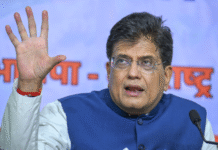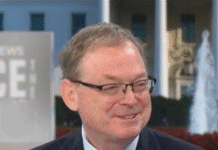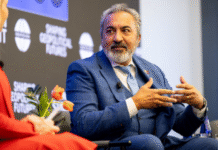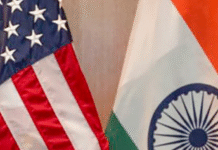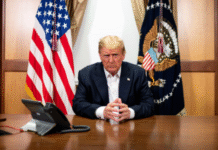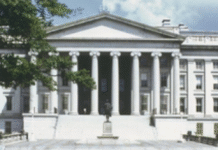WASHINGTON– Former U.S. Undersecretary of Commerce for International Trade and senior foreign policy advisor Christopher Padilla has warned that escalating trade tensions with India could cause lasting damage to the bilateral relationship—potentially weakening America’s strategic foothold in the Indo-Pacific.
“I’m concerned that for the sake of short-term issues, we’re putting this relationship at risk,” Padilla told IANS in an exclusive interview.
He cautioned that U.S. actions may leave a lasting negative impression in India. “There will be a long memory,” he said. “Saying that India—one of the fastest growing economies in the world—is a dead economy doesn’t help. These slights will not be quickly forgotten.”
Padilla, who served in the George W. Bush administration and now works as a Senior Advisor at the global consultancy Brunswick Group, attributed the current crisis to policy choices that challenge India’s core economic and geopolitical interests.
“The pressure to open up India’s agriculture and dairy sectors, along with its insistence on maintaining an independent foreign policy—those are foundational issues for New Delhi,” he said. “Trying to force changes there creates serious friction.”
Padilla acknowledged that U.S. tariffs on Indian exports “will be painful,” but said Indian exporters could find alternative markets.
“When you look at key Indian exports like textiles or precious stones, there are other destinations. Even with iPhones being made in India—if they can’t be sold in the U.S., they’ll be sold elsewhere.”
He also flagged Washington’s shifting posture toward India’s relationship with Russia, long seen as a minor irritant in an otherwise growing strategic alliance. “For years, the U.S. was willing to live with that for the sake of countering China. Now, that approach seems to be changing,” he said.
Padilla expressed surprise at what he sees as a tilt in U.S. policy. “We’re seeing significant damage to the U.S.-India strategic relationship, even as the U.S. appears to be making concessions to China—its most significant geopolitical competitor.”
Asked whether the pressure campaign could push India closer to Russia and China, Padilla said that while each country has diverging interests, “it’s not in the interest of the United States to drive them into closer collaboration.”
Having worked on major U.S.-India agreements in the mid-2000s—including the landmark civil nuclear deal—Padilla underscored that Washington’s coercive tactics won’t succeed with a country like India.
“India is a vibrant democracy. This is not a small country in Latin America or Southeast Asia that can be pressured into compromising its core interests,” he said. “That strategy won’t work here.”
Looking ahead, Padilla admitted that de-escalating the standoff will be difficult, but not impossible.
“We’ve built 20 years of a strong relationship. There’s a firm base of shared interests,” he said. “I hope cooler heads will prevail. We have bigger priorities than just trade and dairy.”
He closed with a sober prediction: “Buckle up. This isn’t going to settle into some stable equilibrium anytime soon. For the next three and a half years, the only thing you can count on is uncertainty.” (Source: IANS)




